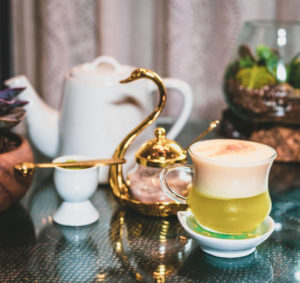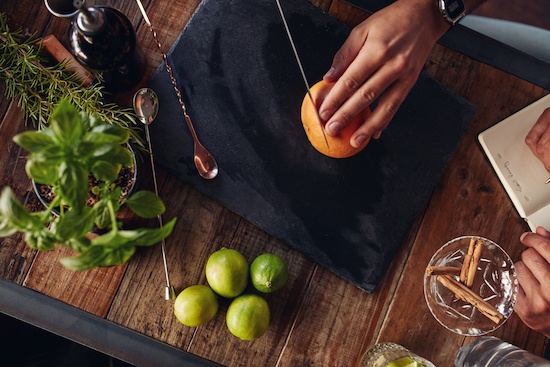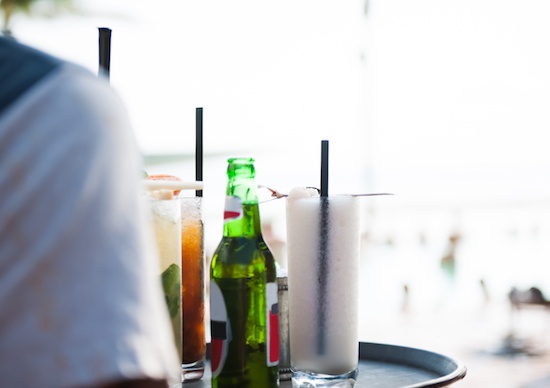Carley Gaskin in September was crowned the North American Winner of the 12th Annual “Most Imaginative Bartender” Competition, presented by Bombay Sapphire gin and the U.S. Bartenders’ Guild, thanks to her innovative zero-waste cocktail recipe, Geb’s Reviver. We caught up with the Chicago-based bartender to learn more about her approach and philosophy on sustainable bartending.
How did you created the zero-waste ingredients for the Geb’s Reviver?
Carley Gaskin: I wanted to showcase how to use ingredients that would normally be thrown away, such as pineapple pulp or lemon rinds, to create a new cocktail component that adds a lot more flavor and complexity to a drink. With Geb’s Reviver, I saved the pineapple pulp from a pineapple I juiced for the foam and mixed that with the lemon rinds I used for juicing lemons and let sit over sugar for 24 hours to create a beautiful, bright oleo saccharum. I then saved the carrot pulp from a carrot I juiced to make the foam and dehydrated it to use as a garnish.
Is sustainability important in the bartending community today?
CG: I think sustainability is very important to most bartenders today. We’re beginning to see the impact we’re able to have and the amount of waste produced by each bar every night.
If you think about how many bars there are across the world, the amount of waste really adds up. Guests seem to have become a bit more aware of the low-waste and zero-straw movements and more interested in what lengths bartenders are going to be more mindful of waste.
What are some of the things bartenders are doing to minimize their environmental impact?
CG: Over-prepping and over-ordering is something we’re becoming more aware of. I’ve been seeing a lot more bars begin to use powders such as different citric acids instead of lime juice, or moving towards clarifying ingredients to keep them longer. I’ve also seen a lot more bars begin to compost, which is great!
Do you seek out and stock sustainably made products, such as spirits, beer and wine?
CG: I do. I think bartenders are becoming more aware and are beginning to move away from products that aren’t made in a sustainable manner. I wouldn’t say that I promote these products, but I do support them by using them.
If a guest asks about a product I’m using or have listed on a menu, I’m always happy to talk about how it’s made, where it’s from, etc. I think it’s important to steer away from knocking other products when talking to a guest. Give them the facts, give them a taste and let them decide.
Is sustainable packaging a consideration with beverage alcohol products?
CG: Definitely! There are a lot of bartenders that will tell you that they love a certain spirit not only because of the taste or how it’s made, but whether or not the bottles can be reused for batching or syrups.
For instance, is the bottle’s neck long? Does the sticker come off easily? Is it a weird shape? Bartenders—myself included—get weirdly excited about the small things such as a “sexy unbranded bottle.”
 Geb’s Reviver
Geb’s Reviver
1 ½ oz. Bombay Sapphire gin
¾ oz. Pineapple-lemon oleo
½ oz. Lemon juice
½ tsp. Matcha powder
Combine all ingredients and shake. Top with pineapple, carrot, Bombay Sapphire foam. Garnish with dehydrated rhubarb and carrot powder.











